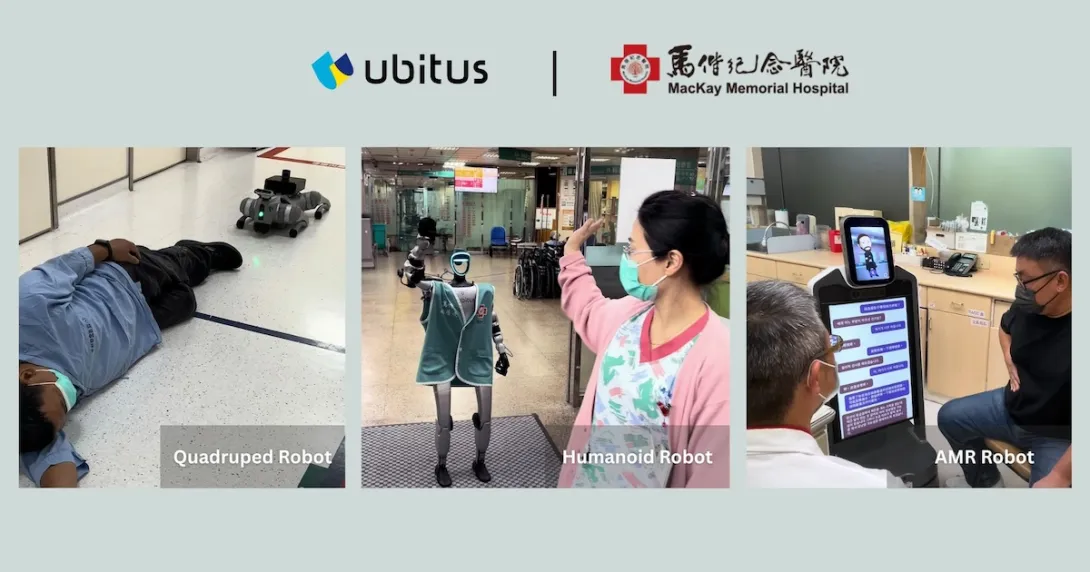
Photo courtesy of Ubitus
New smart robots supporting logistics, safety, and patient experience have been unveiled at MacKay Memorial Hospital in Taiwan.
The 1,200-bed private Christian hospital in Taipei has collaborated with cloud and AI technology provider Ubitus to develop three robots powered by NVIDIA technology:
-
An NVIDIA ACE virtual assistant-powered robot that provides hospital registration assistance, companionship, and navigation to patients.
-
A humanoid robot that autonomously transports specimens and handles materials with dual arms.
-
A four-legged robot that performs environmental monitoring, including gas detection, thermal sensing, and water leakage detection.
These robots run on NVIDIA Blackwell GPUs, as well as Meta's Llama 4 large language models and the NVIDIA Riva, which enables natural, multilingual interactions.
WHY IT MATTERS
While MacKay Memorial did not say much, CEO Dr Chia-Shiang Lin was quoted as saying in a press release that these robot deployments "not only enhance patient service quality but also optimise internal workflows and safety management."
In a statement, Ubitus shared that they plan to expand the smart robot deployment across the hospital's emergency, inpatient, rehabilitation, and long-term care settings.
THE LARGER TREND
Fellow Taiwanese hospital, Taichung Veterans General Hospital (TCVGH), was recently reported to have tried out a collaborative smart nursing robot powered by a large language model. TCVGH worked with Foxconn to develop the robot named Nurabot to accompany nurses. The robot can help reduce nurses' workload – particularly in delivering medication, transporting specimens, and patrolling wards – by up to 30%.
Outside Taiwan, Changi General Hospital in Singapore also trialled a trio of autonomous robots in its emergency department in 2023. The robots were designed to support wayfinding and deliver blankets and medications.

